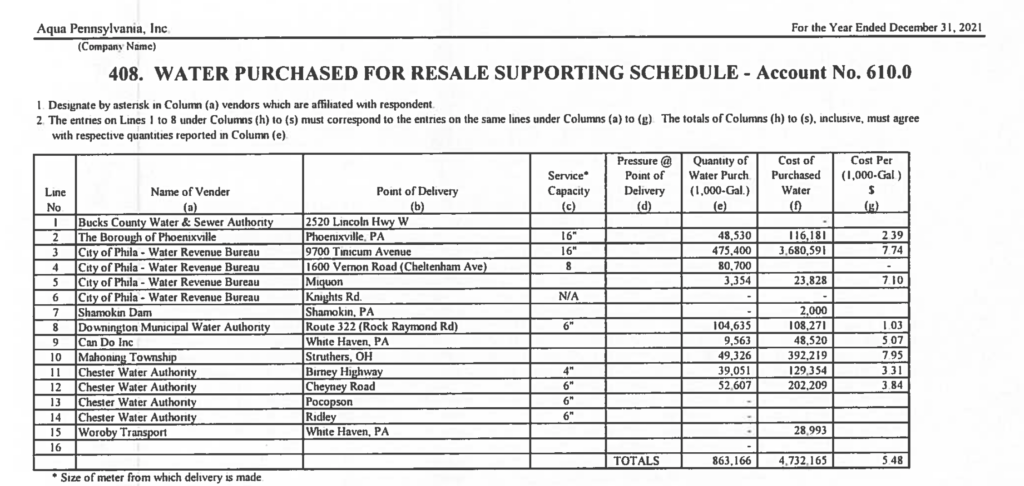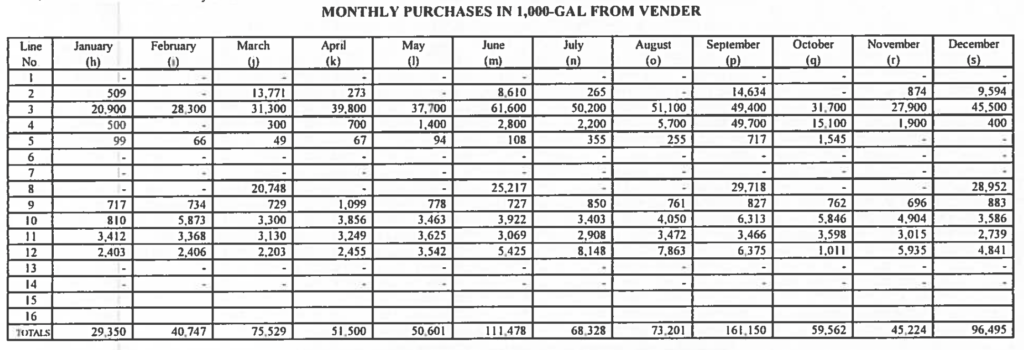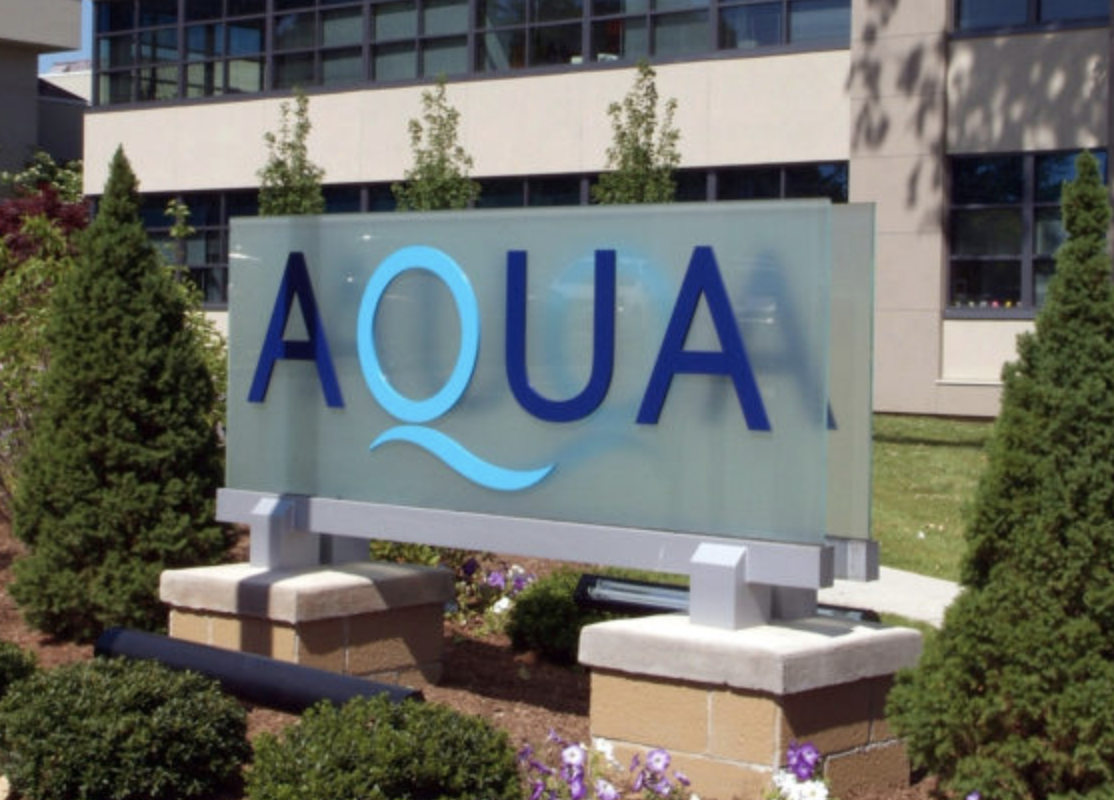After a chemical spill into the Delaware River Friday forced Philadelphians to turn off their taps and buy bottled water, Aqua PA assured its suburban customers that their water was safe. However, documents from the Public Utility Commission show Aqua has been buying water from the Philadelphia Water Department’s supply for years.
An Aqua spokesperson confirmed Monday its water system purchased Philadelphia water “periodically” through direct “channels” connecting the systems But, she said, those channels were closed when the spill was discovered.
In its most recent annual report filed with the Public Utilities Commission (PUC), Aqua stated it bought 559 million gallons of water for resale from Philadelphia in 2021. In 2020, Aqua purchased 492,574 million gallons of water from Philadelphia. And in 2019, it purchased 475,491 million gallons.
Dave Hixon, a spokesperson for the PUC, confirmed the filing. He also said Aqua told the PUC it closed those interconnections with the Philadelphia Water Department after the latest spill.
A spokesperson for the Philadelphia Water Department said, “Aqua Pennsylvania purchases water from the Philadelphia Water Department through a wholesale contract and distributes it to their customers outside of the city.”
Aqua has been at the center of multiple controversies over the past few years as it has tried to implement an ambitious program of buying publicly-held sewer and water systems across the region. The company is currently embroiled in legal action over its attempted purchase of the Chester Water Authority. Last year the state’s Consumer Advocate office sued to stop Aqua’s takeover of the wastewater system in Willistown Township.


Aqua insisted Friday’s chemical spill wasn’t an issue for its customers and downplayed the millions of gallons of water they buy every month from the Philly system.
“We access water from the Philadelphia Water Department (PWD) periodically as part of a diversified water-source strategy,” said Aqua spokesperson Sarah Courtright. “Aqua PA closed that channel the minute we knew about the spill. And we’ll only resume accessing PWD water when we’re confident there is no danger.
“Diversifying water sources is a best practice because it increases our water-quality integrity and our systems’ resiliency,” Courtright added.
Aqua bought between 20 million and 60 million gallons each month in 2021, according to their filing. With that volume of water so high, questions are being raised about where Aqua got the water it needed to serve customers during the Delaware River shutdown if it didn’t come from Philadelphia Water.
On its website, Auqa said it acted immediately to protect its water supply from the spill on the Delaware River tributary in Bristol and will continue to monitor the situation. It did not mention its “interconnections” to the Philadelphia Water Department.
“The safety of our customers and employees is Aqua’s top priority,” the company said. “Our operations team immediately shut down the intake to our Bristol water system as soon as we learned of the chemical spill, preventing customer exposure to hazardous materials. As a result of their fast action, we are not seeing any of the chemicals from the spill in our drinking water.
“We will reopen our intake only when we are confident that the source water is safe for our customers and meets our stringent quality standards,” the statement added.
In Bucks County, where the accident occurred, the county released a statement Monday that said the county’s emergency management agency “remains on scene and in close contact with state, federal and local partners, as well as the water providers in the affected area.
“There continues to be no known adverse impacts to drinking water in Bucks County,” the agency said, adding that “water suppliers in the area reported this morning that contaminants from this weekend’s spill are not being detected near the intakes for their plants along the river. They say contaminants also have not been detected in the drinking water supply.
“Multiple samples collected Sunday by the U.S. Environmental Protection Agency and U.S. Coast Guard also have shown no contamination near the water intakes. Sampling is expected to continue (Monday).”
The Lower Bucks County Joint Municipal Authority said it had not been affected by the chemical release because its intake valves are upstream from where the accident occurred.
The Chester Water Authority also released a statement saying none of its water comes from the Delaware River. Its sources are the Octoraro Reservoir and the Susquehanna River, and its customers “should feel confident that their drinking water continues to be of high quality and meets or exceeds all federal and state regulations.”
According to Bucks County officials, the leak occurred at the Trinseo Altuglas chemical facility in Bristol Township and spilled between 8,100 and 12,000 gallons of hazardous materials into the Delaware River.
The material spilled is a water-based latex finishing solution and is non-toxic to humans.
Michael Carroll, Philadelphia’s deputy managing director for transportation, infrastructure, and sustainability, told reporters Sunday that one chemical released into the river was butyl acrylate.
“It is a chemical that was identified in the spill in East Palestine,” he said. “So, we understand there are some known health effects, and their established thresholds in terms of the parts per billion that the EPA feels are safe.”
Please follow DVJournal on social media: Twitter@DVJournal or Facebook.com/DelawareValleyJournal

